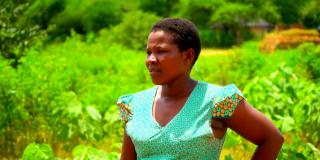
Amplifying the voices of women's movements to address violence against women and girls in Zimbabwe.
January 2020 to December 2022
Please note this page includes distressing themes.
The issue
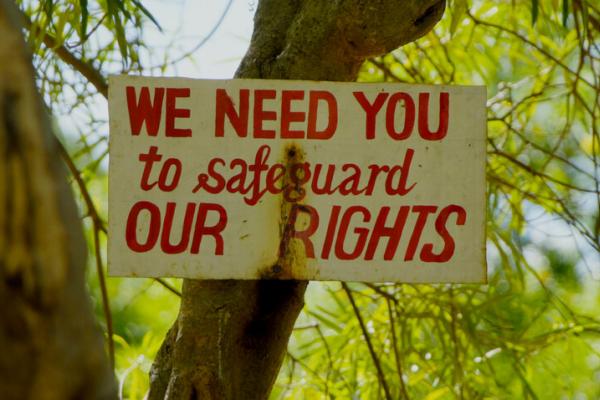
A sign at Chitsungo Mission in Mbire district, Mashonaland Central, Zimbabwe, where Batanai Sewing Club meets. The economic vulnerability of women and over-dependence on men is a major driver of gender-based-violence.
Over 35% of women and girls in Zimbabwe aged 15-49 have experienced physical violence. 14% of this group experience sexual and gender-based violence, often perpetrated by spouses. Child, early or forced marriage is prevalent in Zimbabwe with 32% of girls married before their eighteenth birthday (British Home Office, 2018).
Women may also be kicked out of their homes by their spouses, leaving them alone and vulnerable. This is not an uncommon phenomenon in some cultures. Men “decide” they no longer wish to carry on with their union and inform their close relatives to dissolve the marriage. Children are often caught in the middle this happens and due to a lack of legal support, mothers may struggle to gain custody.
Women face issues accessing health services, often being a long distance from local facilities. Cases of women giving birth on the road on the way to clinics and threats of abduction and rape of women and girls, is affecting their access to health care services and facilities. Due to the distance some patients are unable to access vital medication, such as antiretroviral therapies that are used to treat HIV.
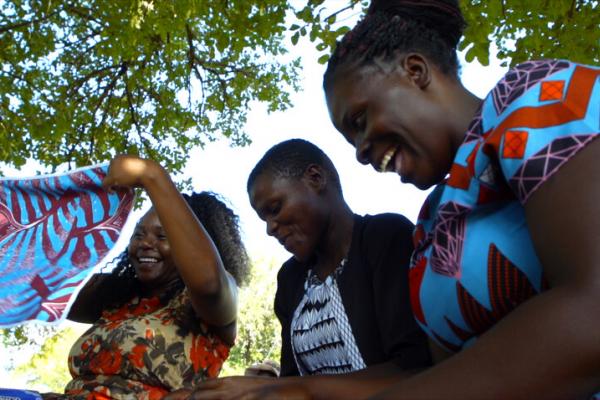
How Speak it Loud is helping women find their voice
Speak it Loud helps the most vulnerable women, through two approaches; prevention and response.
The project aims to reach 42,000 women and girls within women’s rights groups, schools, civil society organisations and the community. By bringing together these groups, VSO will help women and girls to jointly advocate to end violence against women and girls through multiple social movements as well as advance gender equality and women empowerment.
The project is being implemented in Mashonaland Central, Mashonaland West and Manicaland provinces for three years. In these provinces, occurrences of violence against women are far higher than the national average, with 56% of women having experienced physical violence in Mashonaland Central, 49% in Manicaland and 47% in Mashonaland West.1
We have reached more than 28,000 women and girls so far with services and information.
1,500 of the women and girls reached, have a disability
A total of 15 local women led and focused organisations have had their capacity built in different aspects of programming to be able to respond better to women and girls
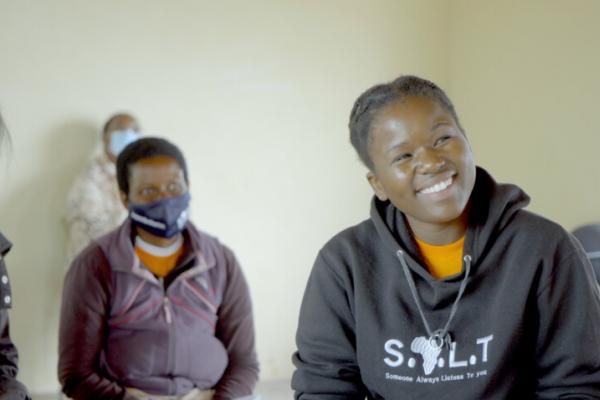
Prevention
Challenging social norms
Speak it Loud uses a male engagement programme to challenge toxic behaviours amongst both men and women within the area. Through local community initiatives, sessions are conducted with both men and women to help change attitudes towards women and promote women’s empowerment. They conduct weekly dialogues with men only, known as ‘dare’ and women only dialogues known as ‘dara.’ Through these dialogues both men and women address causes of gender-based violence. These range from issues of lack of respect for one another, educational level differences, food-insecurity and poverty or economic challenges. Issues like these are believed to fuel cases of gender-based violence and intimate partner violence.
These sessions also focus on the role and responsibility of communities in identified problems that exacerbate cases of violence against women.
During the dare sessions, people have an opportunity for a one-on-one dialogue with counsellors. VSO has Psychosocial Specialists working within the various provinces supporting and capacitating the network with requisite skills. Discussions have resulted in positive actions, such as the building of new clinics closer to the community.
BentoWhen I first attended the Thursday dare, I was sceptical on how these would help. However, after I was taken through several sessions on effective communication, gender equality and roles, my line of thinking began to change. I began to realise the implications of my actions and how I could change them.
Attendee of 'dare' male engagement sessions
Engaging with local leaders
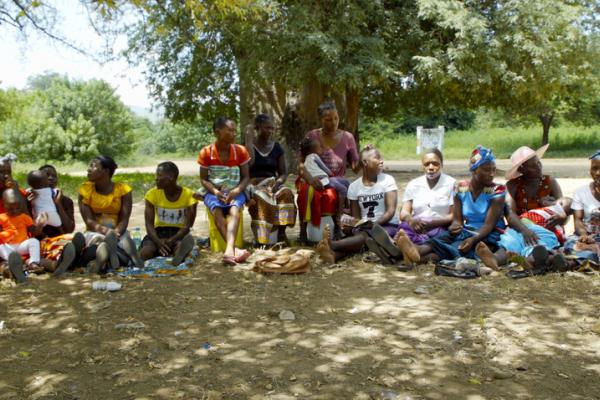
Community leaders are cultural gatekeepers as they individually and collectively reproduce and sustain dominant cultural tropes that normalize Violence Against Women (VAW). Cultural practices such as virginity testing or wife inheritance infringe on the rights of women and girls. Equally, religion has remained a sensitive area where VAW is excused, and certain acts are defended as being determined by the founders of the church. The project engages religious and cultural leaders and challenges the normalization and perpetuation of VAW.
By engaging with these leaders, the Speak It Loud project has facilitated the creation of psychosocial support groups that are safe spaces for survivors of VAW. Part of the trained psychological support group leaders are traditional leaders who are strategic partners in addressing issues affecting women and children.
The project assumes a strong social accountability arm where leaders are held to account through accountability forums. Through trainings conducted by Speak It Loud, women in Magogi village in Mashonaland West were able to engage their local Rural district council and the Ministry of Health and facilitated the construction of a clinic to cater for their catchment area. Community women have been capacitated with the skills and knowledge on how to confront service providers and lobby for better services.
Response
Working with local authorities

VSO has strengthened the referral pathway when it comes to reporting of gender-based violence cases. We have done a mapping of the referral pathway in all areas of operation to assist all stakeholders on how to go about the pathway. VSO has also been training health workers on the clinical management of SGBV in conjunction with the Ministry of Health and Child Care. Matters brought to the police stations are receiving a comprehensive package that includes psychosocial support. Speak it Loud has helped to increase police presence in areas where women are vulnerable, such as health clinics.
Supporting survivors through trauma
Psychosocial support centres are being set up with the help of women’s rights groups, to support those who are victims of abuse. These survivor centred groups have been created to provide people with a support network and reduce any feelings of isolation and helplessness. They are also safe spaces where survivors engage into meaningful activities that can help them in regaining a sense of control for the rebuilding of their lives.
Justice for survivors
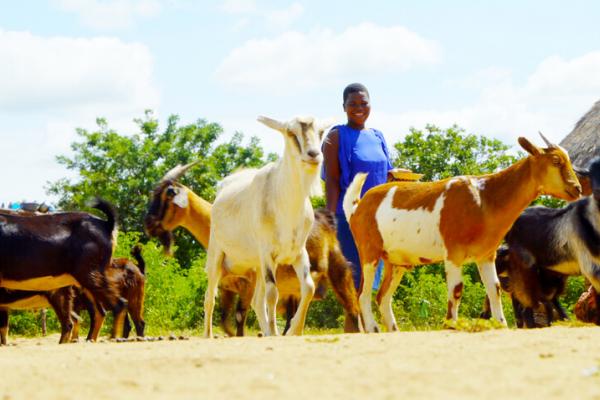
Working with our partner, Women and Law in South Africa (WLSA), the project provides women with free legal representation so they can seek justice. The judicial system in Zimbabwe is inconsistent and defective when it comes to cases of gender-based violence. Some perpetrators are arrested for a few days and then released, leaving the survivors, who are mostly women, more vulnerable. Prosecuting sexual offence cases can take up to two years before judgement is passed on the perpetrator. As such, women are reluctant to report cases of abuse and this has led to more women suffering in silence and being exposed to violence.
Legal support provided by WLSA is helping prosecute perpetrators of abuse, helping women to gain custody of their children and make sure that laws supporting gender equality are being put into practice.
Promoting independence
These centres also empower women through economic activities to ensure they can be self-sufficient. Activities include the running of farming projects and helping women to grow their businesses through Internal Savings and Lending Schemes . These schemes are community led and offers low interest rates and flexible repayment plans to their membership.
"I was brilliant at school and I was messed up by men"
A short film from Voice of America discusses a new law that criminalises child marriage in Zimbabwe for the first time. It includes interviews with Portia, a survivor of early marriage who is now a peer educator, a chief who is working with VSO, and a lawyer from our partner, Women and Law in Southern Africa - Voice of America.
Impact of COVID-19
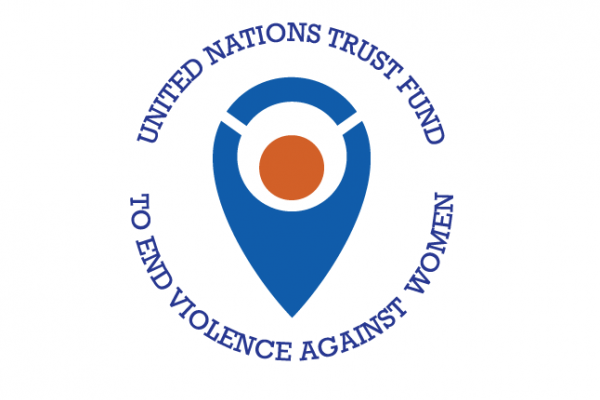
Women and girls are facing diverse challenges and risks associated with the COVID-19 pandemic. Due to lockdown restrictions, the socio-economic situation of many families has worsened, with increased risks of spousal violence, sexual abuse and exploitation, child abuse, economic and emotional abuse, and assault. Most justice and social protection services have been disrupted or closed, reducing access for women to gender-based violence services.
Before the lockdown, most women and girls, survived on informal small-scale income generating activities. The lockdown has deepened their poverty, as women could not get out of the house to look for jobs in order to ensure food security for their families. This is resulting in increased cases of forced or early marriages.
When Zimbabwe was under national lockdown, social media is one way Speak It Loud continued to reach vulnerable women, with posts encouraging women to not ‘suffer in silence’ and details of how to contact a toll-free helpline and report instances of violence.
Footnotes:
- Zimbabwe Demographic and Health Survey 2015
Find out more
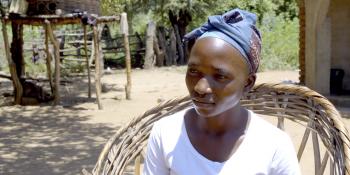
The mental health lifeline for survivors of abuse in Zimbabwe
In Zimbabwe, survivors of violence and abuse have little access to mental health services to manage the trauma they’ve experienced. For those who’ve been through so much, what support is out there?

Shining a light on the plight of women in Zimbabwe’s mining communities
In poor, rural communities in Zimbabwe, miners put their lives at risk in the pursuit of gold, and it’s often women who suffer the consequences.
The impact of climate change on women and girls
VSO is working to achieve gender equality in the context of climate change and disaster risk reduction. Find out more.
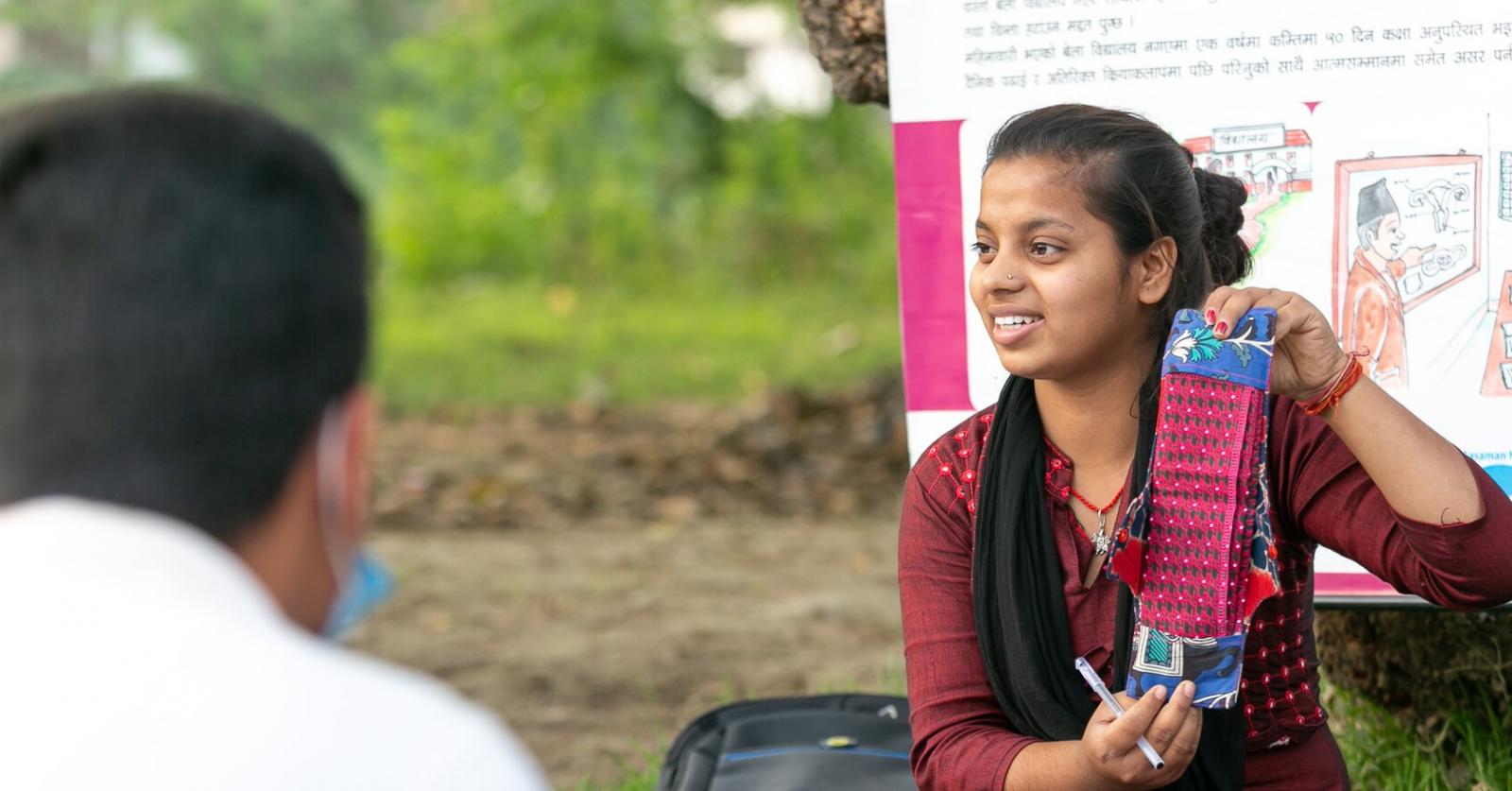
Support us with a donation
